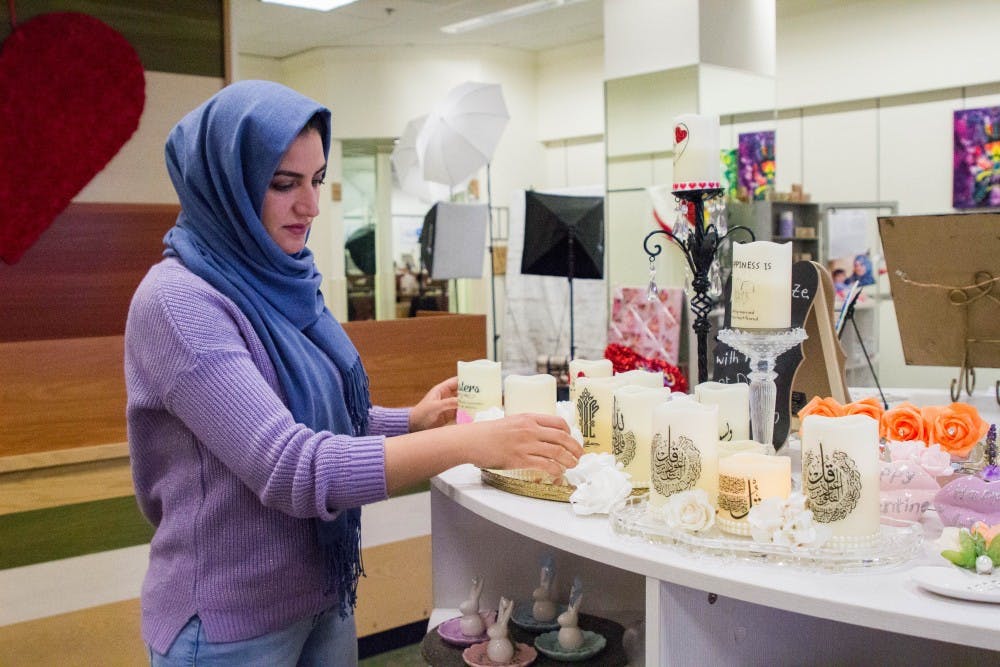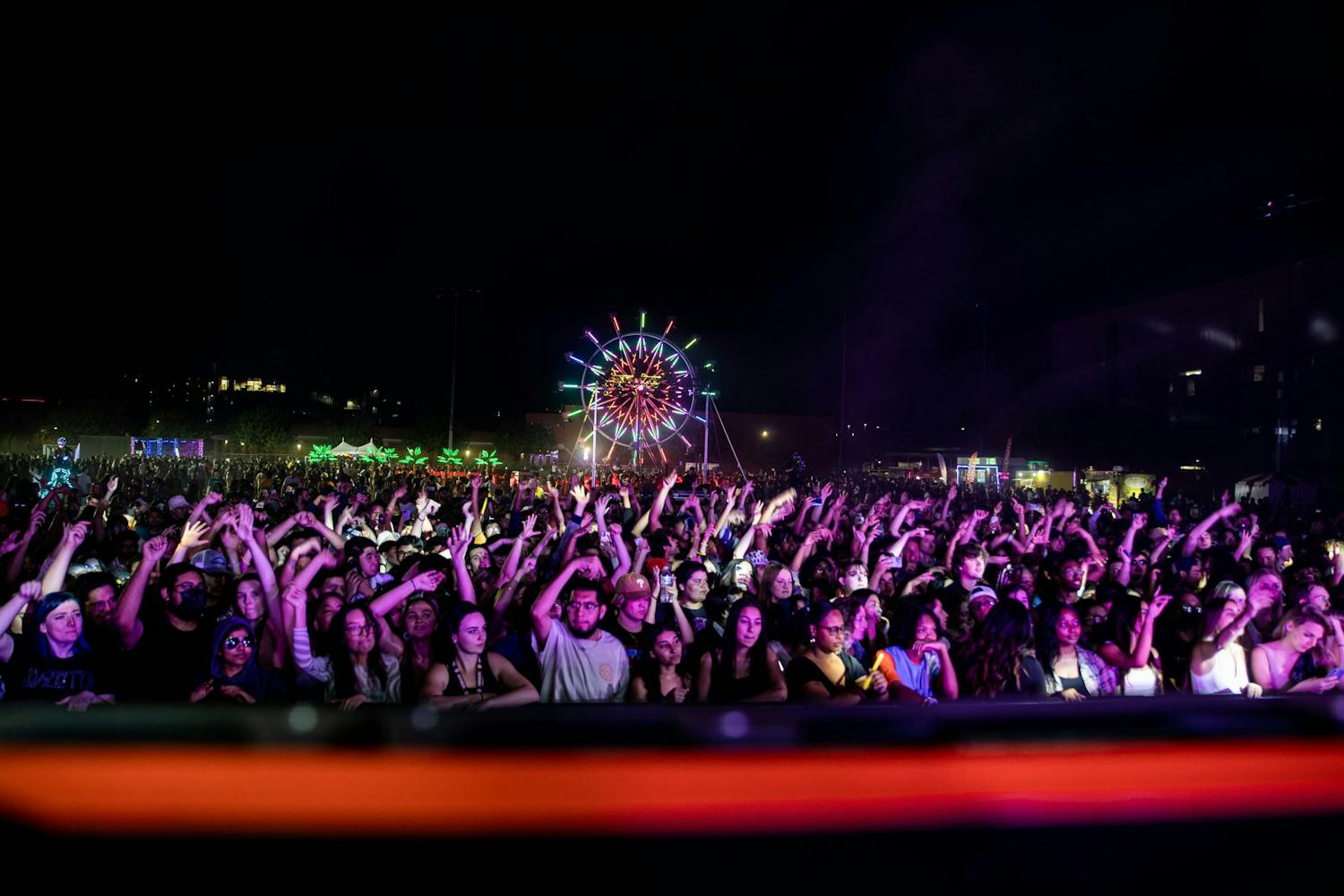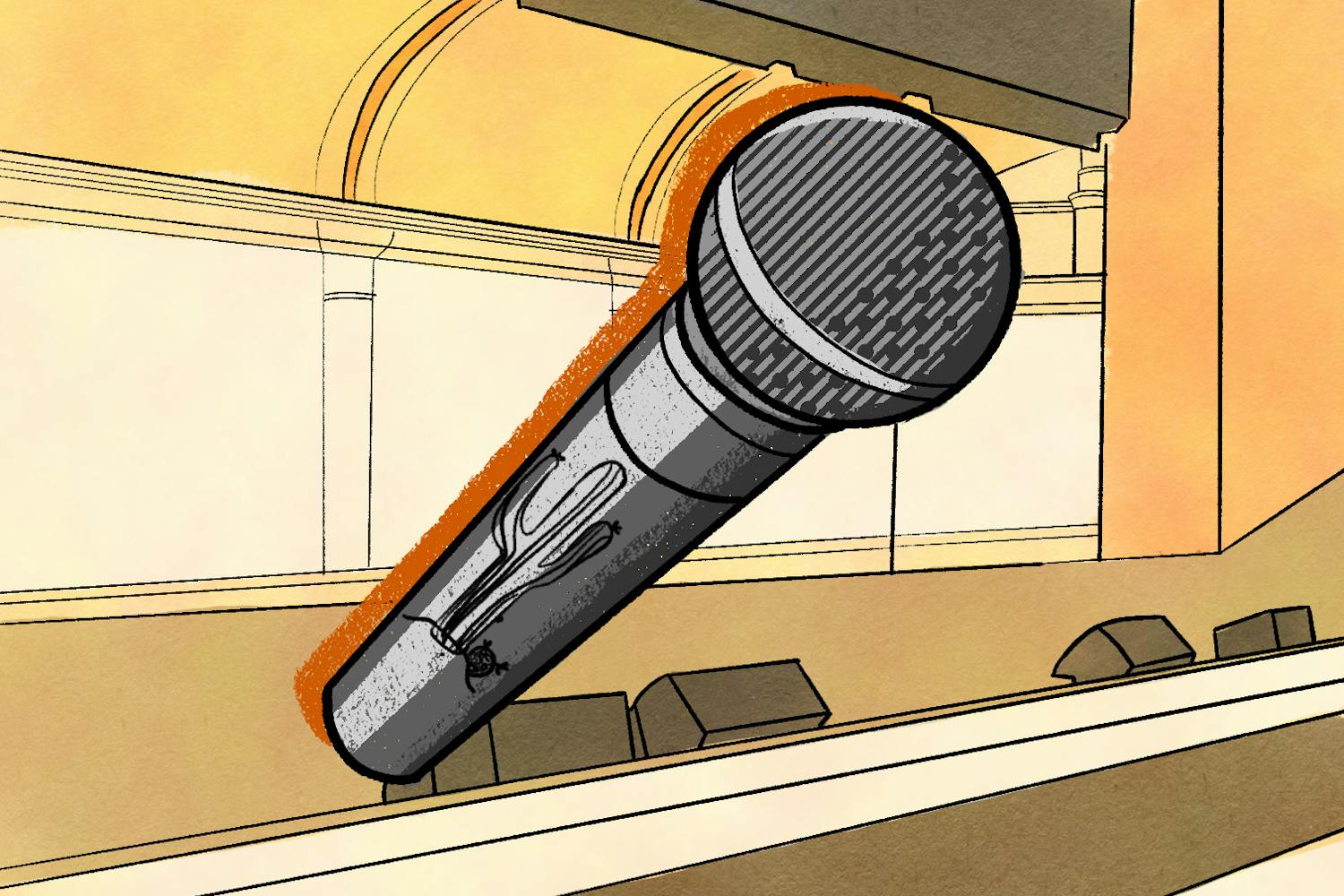After escaping war and leaving their lives behind in countries such as Iraq, Syria and Afghanistan, 23 female refugees are now selling handmade goods through the Global Market pop-up shop at CityScape in downtown Phoenix.
The shop sells artwork, baked goods and accessories as well as items like photography prints, with all proceeds going to the refugee vendors. Organic soaps and henna tattoos are among the more popular products and services, said Alyaa Al-Maadeed, a graduate student studying social work who helped plan the program.
The store opened its doors early February and will remain open until the end of the month, she said.
"It takes a village to make something like this," Al-Maadeed said. "Everyone was proud at the grand opening, but at the end of the day the success is in what the individual refugee vendors learn and how they integrate into the community."
The American Muslim Women’s Association of Arizona has also partnered with the Global Market to feature items in the store that have been created through its Sewing for Success program.
The AMWA is a non-profit charitable organization in Arizona that aims to form strong families through the empowerment of women through education, mentoring and job assistance.
According to Al-Maadeed, the idea of the project was conceived in August 2017 after ASU's Office of Global Social Work and the vice mayor of Phoenix's office brainstormed opening up a store for refugees and working with ethnic-based community organizations.
Dawlat Alrifai is one of the refugees working at the Syrian Sweets Exchange section of Global Market. She said she came to the U.S. from Syria a year and a half ago and aspires to be a businesswoman.
"I like everything about working here," Alrifai said. "In America you meet people from all over the world, with different languages, different cultures. I want more people to meet me and see what I do."
Tara Al Barazanchi, who is originally from Iraq, sells organic soaps, candles, lotions, bath bombs and other products at the Global Market. She makes all of her products with as many locally-sourced ingredients as possible.
Al Barazanchi said that the Global Market provides exposure to her business and helps her build connections that she otherwise would not have been able to make.
“We are here, we are trying to establish something for ourselves,” she said. “I’m happy to work with them and we’re helping each other. We have the same struggle.”
The Global Market's location in downtown Phoenix has also provided the women with the ability to make business connections outside of their own communities and break out of their comfort zones.
“In here I meet people that if it was in my area I wouldn’t meet,” Al Barazanchi said. “I don’t consider the first time sell as a success, but when they come back for it, that’s when I feel like, yes, they love it.”
Megan McDermott, a graduate student studying social work, was also involved in initiating the project.
McDermott said that her passion for social work was influenced by her own past, and that being helped to believe in herself inspired her passion to do the same for others, as she does at the market.
“One of the most important parts of the store for us is to have these women and their families know that they are supported in the community,” she said. “It’s so important that they believe in themselves that they can do this.”
McDermott said all the proceeds go directly to the women making the products, and that they are responsible for the pricing and tracking of their inventory.
She said when the shop first opened, the refugee vendors stayed in their own sections and hardly made eye contact with customers. But within two weeks, they started engaging with clients and helping sell other vendors' products.
"Everybody has a story," McDermott said. "Anybody that comes into the store can ask them their stories and they will tell you. It's not about supporting the store, it's about getting to know these women who have gone through trauma and are so willing to share their experiences and have dreams like we all do."
Reach the reporter at afalero1@asu.edu and follow @afalero18 on Twitter.
Reach the reporter at chofmann@asu.edu and follow @chofmann528 on Twitter.
Like The State Press on Facebook and follow @statepress on Twitter.




